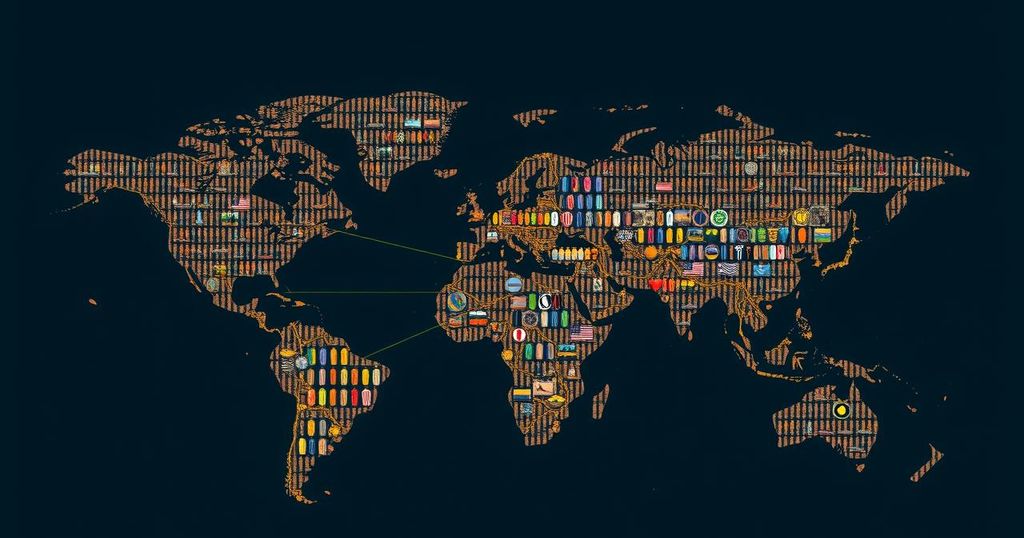Global news
AFRICA, ASIA, EUROPE, EUROPE/ASIA, FINANCIAL TIMES, GAZA, GAZA STRIP, HAMAS, HUMAN RIGHTS, ICC, INTERNATIONAL CRIMINAL COURT, INTERNATIONAL LAW, ISRAEL, KARIM KHAN, KHAN, LEGAL SYSTEM, NETHERLANDS, RUSSIA, SIMON KUPER, SOUTH AFRICA, THE HAGUE, VLADIMIR PUTIN, WAR CRIMES
Leila Ramsay
0 Comments
The International Criminal Court’s Challenges and Global Movements for Justice
The International Criminal Court (ICC) struggles with operational inefficiencies but is presented with a crucial opportunity to enhance its relevance through ongoing investigations against Vladimir Putin, Benjamin Netanyahu, and Hamas leaders. Historical underfunding and limited jurisdiction remain hurdles for the ICC. However, an expanding global movement advocating for accountability may pave the way for justice beyond The Hague, suggesting that war criminals now face increased scrutiny worldwide.
The International Criminal Court (ICC) faces significant challenges in prosecuting high-profile leaders for atrocity crimes, yet recent developments present a unique opportunity for its relevance. Currently, Vladimir Putin, Benjamin Netanyahu, and Hamas leaders are under investigation for war crimes, marking a pivotal moment for the court. However, the ICC’s underfunded and inefficient operations, along with its reliance on state cooperation, hinder its ability to effectuate justice. Nevertheless, a growing global movement advocating for accountability may compensate for the ICC’s shortcomings, as more nations assert their right to prosecute atrocity crimes on a universal scale. This shift in focus highlights the possibility of justice occurring outside The Hague, as countries and jurisdictions worldwide increasingly hold perpetrators accountable for their actions.
Expectations for the ICC’s prosecution of notorious figures may remain low given its historical record; yet, the systemic changes favoring international law may encourage enhanced accountability mechanisms. With the rise of national tribunals and the efforts of various countries, including the United States, the precedent for prosecuting atrocity crimes is expanding.
Ultimately, while the ICC may not directly prosecute every accused leader, alternative approaches to enforcing human rights could lead to significant progress in the global fight against atrocity crimes, reflecting a more interconnected and vigilant stance toward international justice.
The International Criminal Court was established in 2002 as a permanent institution tasked with prosecuting individuals for serious international crimes, including genocide, war crimes, and crimes against humanity. However, the ICC often encounters challenges stemming from limited jurisdiction and resources, particularly since several key nations, such as the United States and Russia, are not members. The court has primarily focused on cases in Africa, which has led to criticism regarding its perceived bias. Recent requests for warrants against prominent leaders signify a possible shift toward more significant global engagement with the ICC’s mission.
In conclusion, while the International Criminal Court grapples with operational limitations and criticism regarding its efficacy, emerging global movements against atrocity crimes present new avenues for accountability. The prosecution landscape is diversifying as various nations and legal frameworks begin to exert pressure on perpetrators of mass violence. The hope remains that international justice, whether through the ICC or alternative mechanisms, will grow in strength and reach, creating a more formidable deterrent against future atrocities.
Original Source: www.channelnewsasia.com




Post Comment